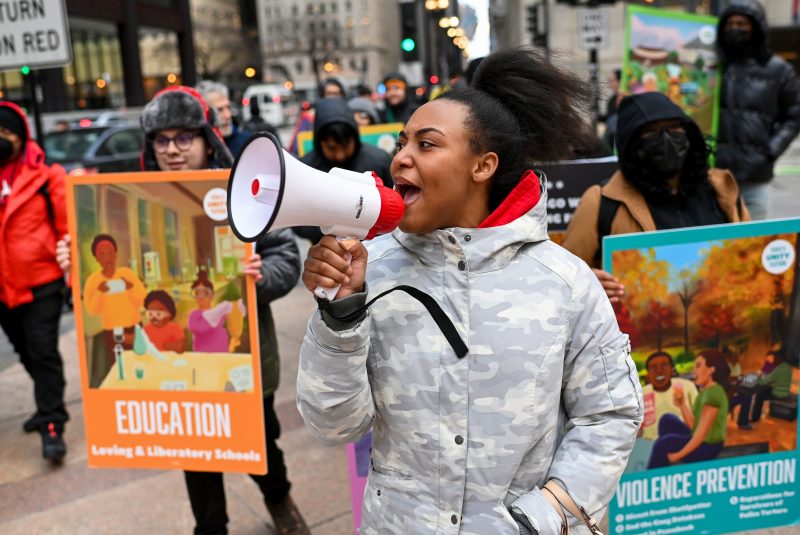I will stipulate at the outset here that I have an unusually intricate view of the importance of age in American politics. My book on the subject was released earlier this year, detailing the way in which the scale of the baby boom (those born between 1946 and 1964) juxtaposes with the emergence of a similarly large, younger generation. From the earliest years of the boom, members of that generation reshaped the country to meet their needs, and that primacy went largely unchallenged until they began retiring — and ceding power to the millennials and Gen Z.
This divide, though, is not simply about age. Young Americans are different from older Americans in a number of ways that overlap with politics: they are more likely to be college-educated, more likely to identify as LGBTQ+ and more likely to be immigrants or have immigrant parents. That last point overlaps with a particularly significant differentiator: Younger Americans are more likely to be Asian, Black or (particularly) Hispanic.
Given my view that this divide is a defining aspect of our politics at the moment, informing everything from discussions of race to the increasing age of elected officials, I was fascinated, if unsurprised, to see how often age gaps emerged in new data from Pew Research Center measuring the political pessimism of the nation.
The research extends well beyond age, of course, assessing how Americans view politics generally and highlighting other significant demographic divides. But, over and over, those divides fell along generational lines.
For example, consider the likelihood that Americans see a significant difference between the two parties. Among those aged 65 and over, two-thirds said there was a great deal of difference. Among those under the age of 30, only 4 in 10 held that view. They were more likely to say there was only a “fair amount” of difference.
Some of this is unquestionably an ongoing function of being a younger participant in politics. Younger Americans are less likely to vote regularly (thanks in part to systemic obstructions to their doing so) and are similarly less likely to pay attention to politics. But younger Americans today are more likely to be engaged in politics than older generations were at the same age. So part of this is also how young people engage in politics — which is to say, from outside traditional party structures.
That’s one of the other differentiators between old and young: Young Americans are less likely to belong to a variety of institutions, including marriage. As The Post’s Lenny Bronner and I documented earlier this month, that certainly holds for party membership, too. Below you can see the distribution of party identification by year of age, based on analysis of data firm L2’s national voter data.
The Pew Research data notes that younger Americans are more likely to hold negative views of both parties than are older Americans. And that’s true; more than a third of those under 30 view both parties negatively, more than twice the percentage of those aged 65 and up. But that’s in part because older Americans are far more likely to view only the Republican Party positively (top right quadrant, below) than are younger Americans.
Old and young are about equally likely to say they view only the Democratic Party positively (bottom left quadrant above), but those aged 65 and up are twice as likely as those under 30 to say they view only the GOP positively.
A similar pattern emerged when Pew asked respondents which party Americans feel represent them well. Younger Americans were more likely to say that neither does, in part because they were much less likely to say that only the Republican Party does.
Young Americans are also much less likely to say they believe voting can affect the future. Only 14 percent of those under the age of 30 said they felt as if voting could affect the future a lot. Nearly three times as many people aged 65 and over said the same thing. (Democrats and Democratic-leaning independents were more likely to be optimistic about the utility of voting, something that comports with other recent polling.)
This cynicism crops up elsewhere in the Pew data. Only about a third of those under 30 say that members of Congress support policies that reflect the public good or care about people like them. By contrast, nearly half of those aged 65 and over believe both of those things about Congress. Similarly, 7 in 10 older Americans told Pew that there’s usually at least one candidate on the ballot who reflects their views. Among those under the age of 30, fewer than half agreed.
Why? Well, consider the way this overlaps with the constitution of Congress and other positions of power. Younger Americans have often definitionally different concerns than older Americans: They’re more likely to have kids in schools for example, or be looking to buy their first home. Younger Americans also have political priorities that are shaped by the world in which they collectively grew up, such as concern about school shootings, gay rights or climate change. Older Americans are not uninformed about those issues, of course, but they are often less salient to their lives and have been part of the political conversation for less of their lives.
So young people see older Americans as overrepresented in politics (and they are overrepresented relative to age, as I write in my book) and worry that their needs are not being addressed. This is absolutely in part because Congress is a dysfunctional body, but even if Congress were passing new legislation at a regular clip, whose priorities would those bills reflect?
Cynicism is a challenge for a democracy. People need to believe that their vote can effect change. Young people are less likely to hold that belief, as Pew documents. In part, I would argue, that’s a function of America’s having an unusually large, unusually powerful older generation.

